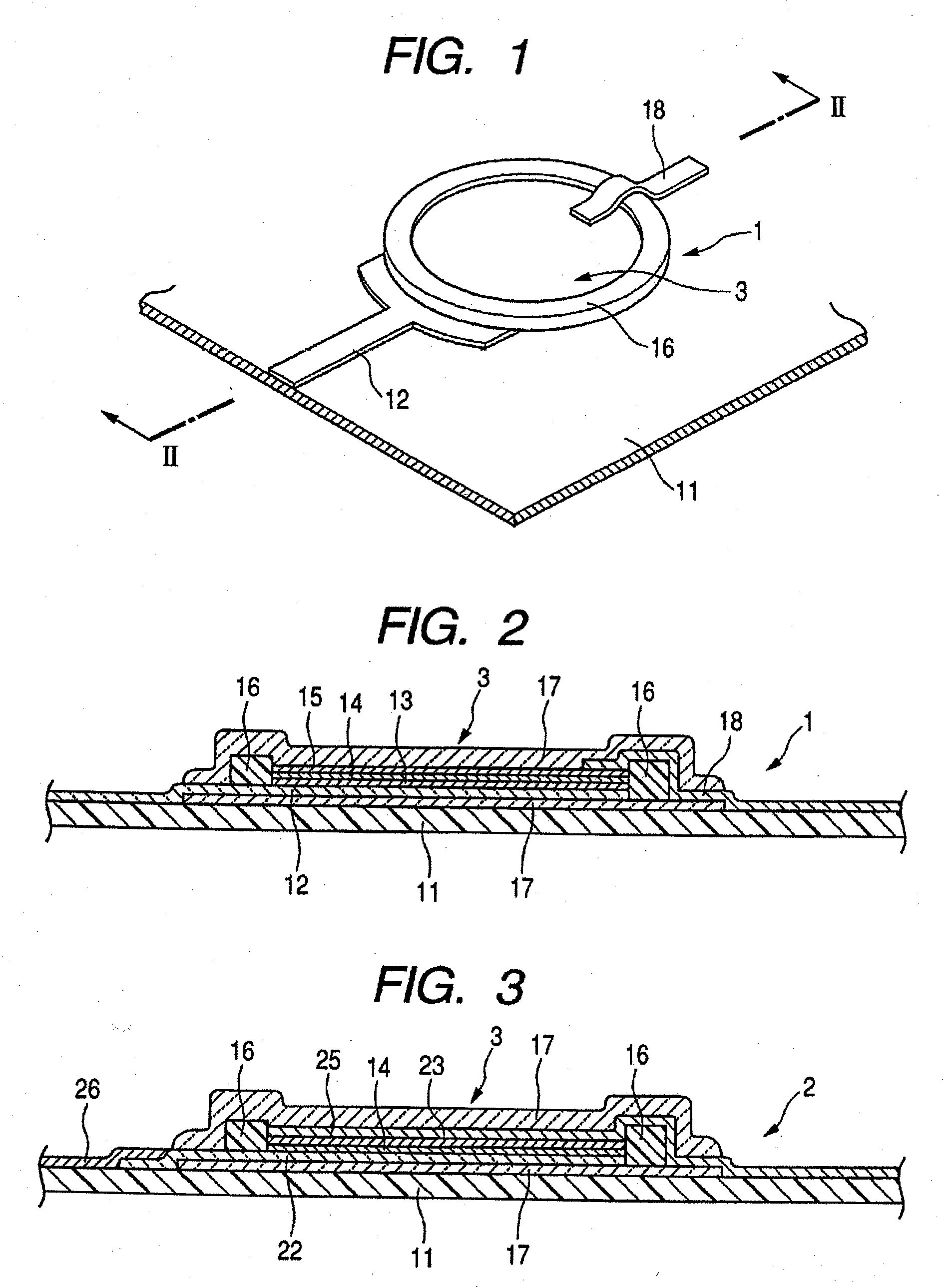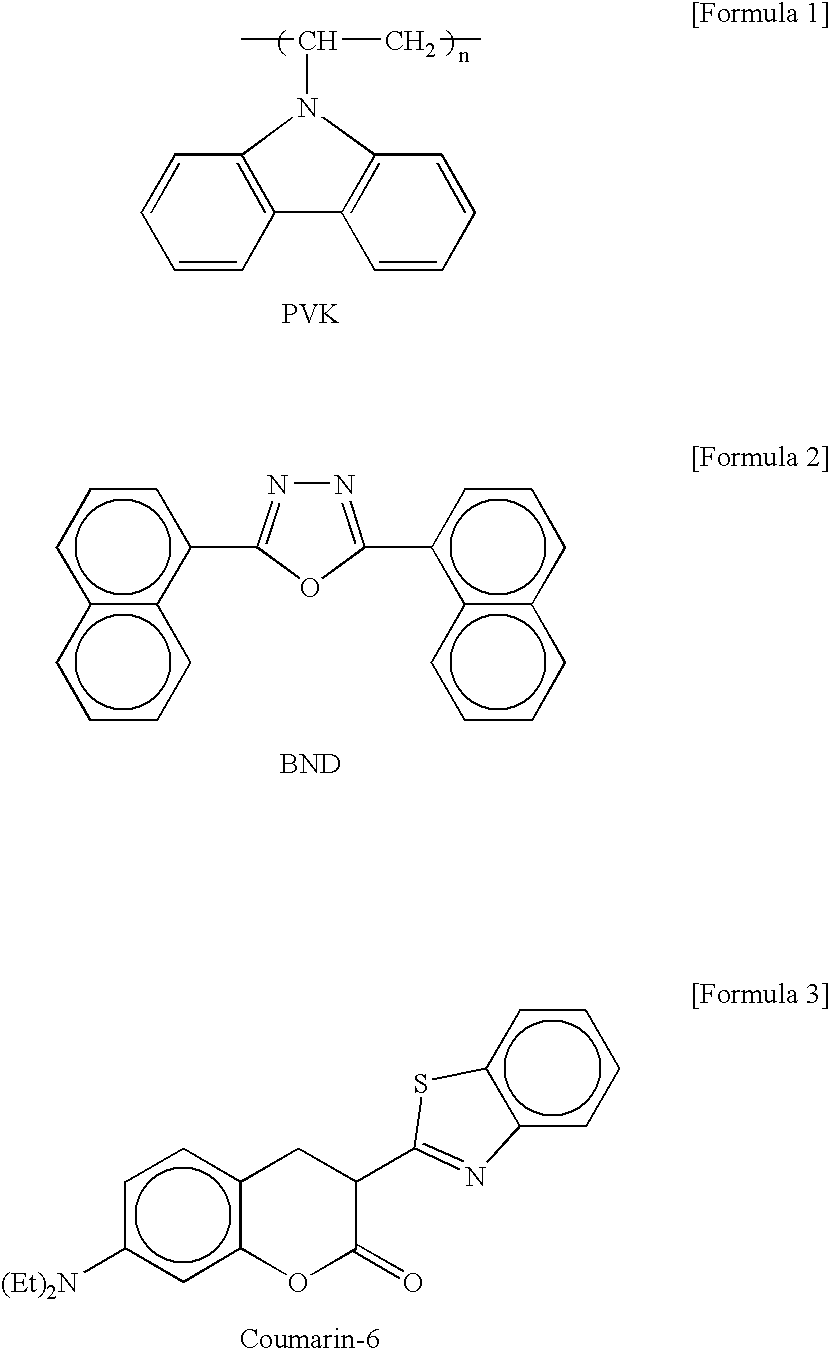Light emitting device
a light-emitting device and light-emitting layer technology, applied in the direction of semiconductor devices, basic electric elements, electrical equipment, etc., can solve the problems of large apparatus, large amount of time required to remove air, uneven surface of metal powder, etc., to improve the light-emitting efficiency of organic light-emitting layer, low work function of electrode layer, and low electron injection energy
- Summary
- Abstract
- Description
- Claims
- Application Information
AI Technical Summary
Benefits of technology
Problems solved by technology
Method used
Image
Examples
example 1
[0062]A solution of tetraethoxysilane is applied on a PET film (Lumirror U94 made by Toray industries, Inc.) to have a thickness of 100 μm by a tubing dispenser (made by Musashi engineering, Inc.), and a heating process is performed at a temperature of 120° C. for half an hour, thereby forming the sealing layer 17 of glass. The tetraethoxysilane solution contains 1% by mass of acetic acid.
[0063]As shown in FIG. 1, screen printing is performed on SW1300 (made by Asahi Chemical Research Laboratory Co., Ltd.), in which a polyester resin binder and silver particles are contained in a circular region, by using a 400-mesh stainless screen printing plate. Then, a heating process is performed under dry air at a temperature of 110° C. for half an hour. In this way, the lower electrode layer 12 is formed.
[0064]Subsequently, the bank (sealing wall) 16 for defining a circular light-emitting region 3 (having a diameter of 5 mm to 10 mm) is formed by screen printing. The bank 16 is formed of FR-1...
example 2
[0073]Using the same materials as Example 1, the bottom emission type light emitting device shown in FIG. 3 is fabricated. When a voltage of 20 V is applied to the transparent electrode layer 22 (anode), serving as a lower electrode layer, and the counter electrode layer 25 (cathode), serving as an upper electrode layer, green light with a brightness of 15 cd(candelas) / m2 is emitted. The half-life of the brightness is 4 days.
example 3
[0074]The light emitting device as shown in FIG. 2 is fabricated in the same manner as Example 1 except that Fine Sphere SVE102 made by Nippon Paint Co., Ltd. is used as the colloidal nano silver ink without adding potassium acetate thereto. When a voltage of 20 V is applied to the upper transparent electrode layer (anode) and the lower electrode layer (cathode), green light with a brightness of 20 cd(candelas) / m2 is emitted. The half-life of the brightness is 3 days.
PUM
 Login to View More
Login to View More Abstract
Description
Claims
Application Information
 Login to View More
Login to View More - R&D
- Intellectual Property
- Life Sciences
- Materials
- Tech Scout
- Unparalleled Data Quality
- Higher Quality Content
- 60% Fewer Hallucinations
Browse by: Latest US Patents, China's latest patents, Technical Efficacy Thesaurus, Application Domain, Technology Topic, Popular Technical Reports.
© 2025 PatSnap. All rights reserved.Legal|Privacy policy|Modern Slavery Act Transparency Statement|Sitemap|About US| Contact US: help@patsnap.com



